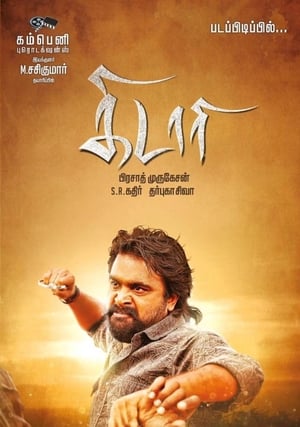
Kidaari
For most of its running time, Kidaari plays out like a mystery — Kombaiya Pandian (Vela Ramamoorthy), the feared bigwig of Sattur, is found stabbed, and the film takes us through a list of people who are most likely to have done the deed. Could it be Bombay Selvam and Kadakkarai who have tried to take revenge for Pandian murdering the former's father, Market Singaraj? What about Pulikuthi Pandian (OAK Sundar), a smooth-talking relative, whose businesses Pandian ruthlessly usurped? Is it Loganayagi (Suja Varunee) and Gandhimathi Nathan, a couple who are baying for blood because Pandian's arbitration left their son dead? Why not Mappillai Vinayagam, a politician who wants to be the boss of the place? There is also Pandian's own son Udayanambi, who is tired of being treated as the third wheel and is jealous of his father's preference for his Man Friday Kidaari (Sasikumar)... Prasath Murugesan uses a novel-like approach to present these suspects. He shows us who these characters are and then narrates the events of the past that triggered enmity between them and Pandian in episodic fashion. To his credit, the director does an effective job in providing us the motivations of each of these characters even as he advances the plot. The characters feel real (though, we wish some very interesting ones like Loganayagi, who starts an affair with Udayanambi upon her husband's suggestion to get her revenge, had been given more screen time) and the choice of actors is excellent. It is only Kidaari who sticks out. While everyone in the place seem to be one kind of schemer or the other, he is just a vettai naai (as the narrator describes him). He takes on his godfather's enemies without batting an eyelid, furtively romances the girl in the house, and stays extremely loyal — in short, does everything that we expect a hero to do. There is a whiff of Gangs Of Wasseypur in the film's proceedings: the usage of the device of a narrator to tell us the bloody events of the past, the numerous rivalries, the stark cinematography (by SR Kathir), the grungy score (by Darbuka Siva) and even the Aatukaara Sandhu, the street where Kombaiya Pandian lives, is similar to the alley in which the protagonists of that film lived — surrounded by houses belonging to Pandian's men and a 'no entry' zone for outsiders. The film manages to be engaging enough, with Murugesan nicely introducing humour (one old character who makes empty boasts is a scene-stealer) into the violent scenes. It is only in the final denouement that the film resorts to cliche. The backstory involving Kombaiya Pandian and Kidaari's father Kottur Durai (Napoleon, returning to the big screen after a few years) is so been-there-seen-that and overlong that it leads to an underwhelming end.
